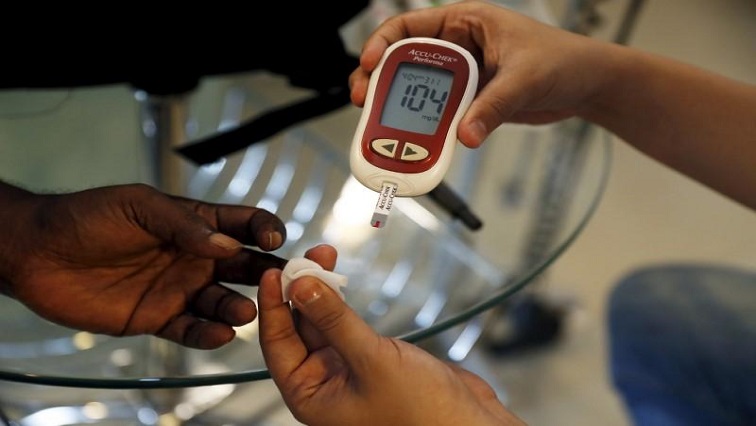-
File Image: A paramedic checks the blood sugar level of a patient.
The prevalence of type 2 diabetes has doubled in South Africa, Kenya, Ghana and Burkina Faso in the past six years, according to a 2025 study, which was released earlier this year.
It found that diabetes affected 10% of middle-aged Africans, putting them at risk of developing cataracts.
The study focused on men and women aged 40-60 years from four sub-Saharan African countries
According to the study, in six years, the prevalence of type 2 diabetes doubled in a group of middle-aged people.
The study’s co-author, Dr Raylton Chikwati, says South Africa had the highest incidence of the disease.
“While all sites in the region showed a doubling in prevalence of type 2 diabetes during the study period, there are still marked differences between the countries. South Africa had the highest incidence of the disease, followed by East Africa and then West Africa,” explains Dr Chikwati
Chikwati adds that urban communities experienced higher rates of type 2 diabetes.
In 2021, globally, about 17.7 million more men than women were living with type 2 diabetes.
“We also found that several other baseline factors, such as body mass index [BMI], waist size, high triglycerides and glucose, lack of exercise, unemployment, hypertension, and a family history of type 2 diabetes, significantly increase the risk of developing the disease,” says Chikwati.
Meanwhile, member of the Ophthalmological Society of South Africa, Dr Mpopi Lenake says, “Diabetes doesn’t just affect blood sugar. It also raises the risk of cataracts, the clouding of the eye’s natural lens. High sugar levels leak into the lens, which causes swelling and damage. At the same time, excess sugar can weaken lens proteins, making them clump together and turn cloudy much faster than in people without diabetes.”
“We’re now seeing cataracts in younger patients, sometimes in their 30s or 40s, because type 2 diabetes is being diagnosed earlier and often isn’t well controlled. Lifestyle changes, rising obesity, and longer years lived with diabetes all play a role,” explains Dr Lenake.
PODCAST | Full interview with Ophthalmological Society of South Africa member, Dr Mpopi Lenake:










